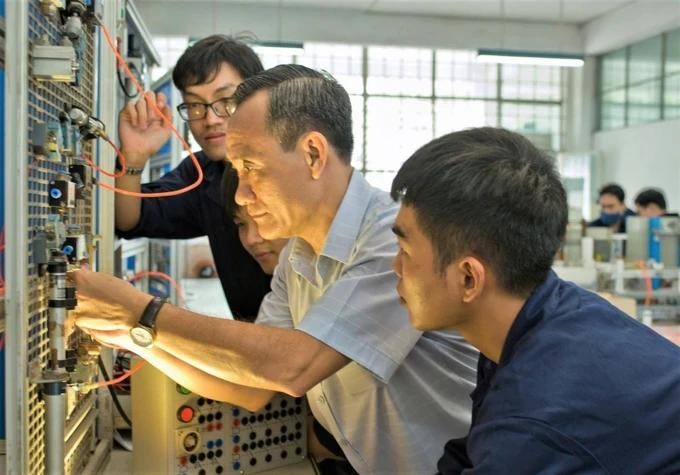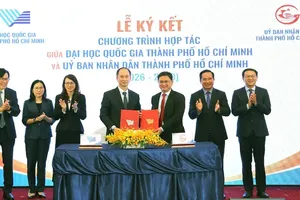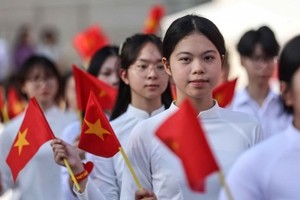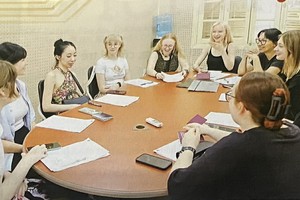
As global integration accelerates and pressure for reform mounts, universities in Ho Chi Minh City are repositioning themselves to churn out graduates who can compete in cutting-edge fields and meet the demands of a fast-changing global economy.
At the core of this shift is a push to internationalise education. Universities are chasing global accreditation to align their curricula with international benchmarks, ensuring graduates can hold their own worldwide. New courses in artificial intelligence (AI), semiconductor design, robotics, and interdisciplinary studies reflect a calculated pivot towards industries driving sustainable growth.
At the forefront is the Ho Chi Minh City University of Technology under the Vietnam National University (VNU) - HCMC. For two decades, it has trained semiconductor engineers, embedding chip design in its electrical engineering courses. With global chip shortages exposing vulnerabilities in tech supply chains, the university is stepping up. For the 2024-25 academic year, it will launch an undergraduate major in integrated circuit design and a graduate major in semiconductors. These are strategic bets positioning Vietnam as a vital node in the global tech ecosystem.
The University of Science, also under the VNU - HCMC, has carved out a niche in the AI and data science frontier. In 2021, it became one of Vietnam’s first to offer undergraduate AI training, followed by master's and doctoral programmes in 2022, covering machine learning, natural language processing, computer vision, and intelligent systems.
Similarly, the Ho Chi Minh City University of Technology and Education introduced robotics training in 2019, integrated IC design in 2024, and expanded into data science, AI, and the Internet of Things (IoT).
This academic overhaul is underpinned by a practical alliance with businesses and local authorities. In 2017, HCMC established a Council of University Presidents, a first for Vietnam, to align higher education with the city’s human resources needs. The result is a series of pilot courses meeting global standards in fields like information technology, AI, finance, banking, and urban management.
According to Prof. Su Dinh Thanh, President of the University of Economics Ho Chi Minh City, the university has poured substantial resources into improving its faculty quality, tapping lecturers from top-tier global universities to bring a world-class edge to its classrooms.
But what sets it apart, he argued, is its symbiotic relationship with the private sector. Businesses don’t just hire graduates, they shape them, contributing to curricula through internships, site visits, and job placement. This ensures students are well-prepared for the labour market upon graduation while feeding industries with ready talent.
























